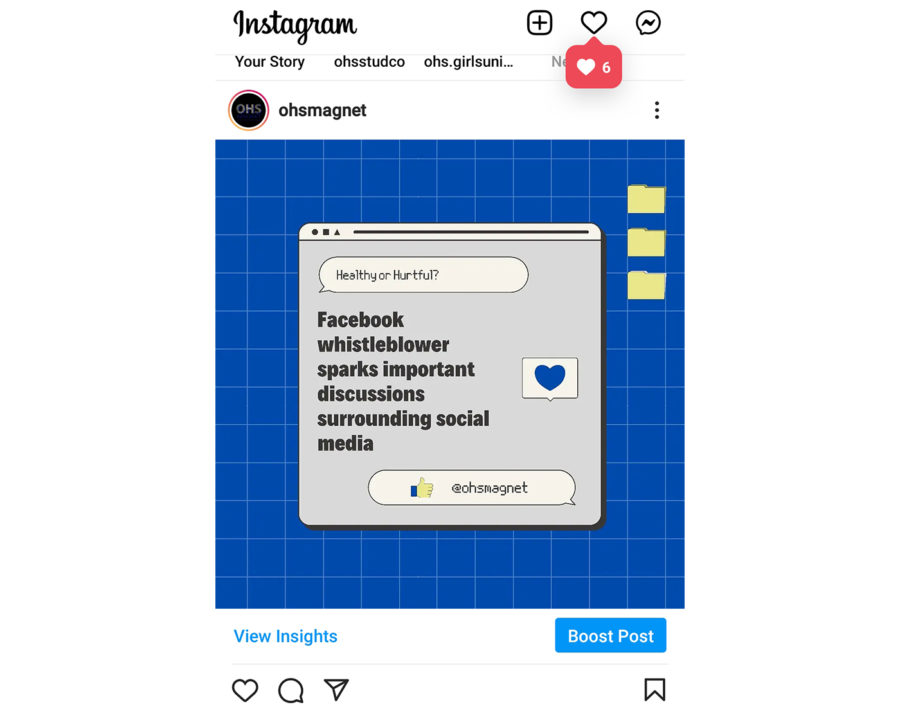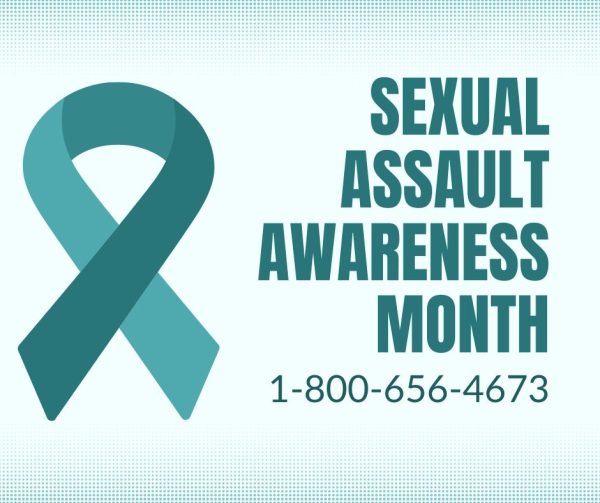Facebook whistleblower sparks important discussions surrounding social media
Healthy or hurtful?
The testimony given by Ms. Frances Haugen on Oct. 5 has raised many questions surrounding the ethics of social media
After an attention-grabbing appearance on 60 minutes on Sunday night, former Facebook employee Ms. Frances Haugen, who is now widely known as the “Facebook whistleblower”, spoke before the Senate Commerce, Science and Transportation subcommittee regarding several issues she encountered in her time as a Facebook employee on Tuesday, Oct. 5.
Throughout her testimony, Haugen made one recurring point in particular: when faced with decisions between company profit and the wellbeing of its users, Facebook will choose the money without hesitation. She said, “I saw Facebook repeatedly encounter conflicts between its own profits and our safety. Facebook consistently resolved these conflicts in favor of its own profits.” Haugen, who worked as a product manager on the civic misinformation team in her time at Facebook, has extensive knowledge when it comes to issues like misinformation and hate speech. Haugen’s testimony has captured a remarkable amount of attention from the media and the public, and has raised important questions surrounding how companies like Facebook can protect citizens and democracy in the digital era.
I saw Facebook repeatedly encounter conflicts between its own profits and our safety. Facebook consistently resolved these conflicts in favor of its own profits
— Ms. Frances Haugen
Facebook has undoubtedly dominated the world of technology since its launch in 2004, and now boasts ownership of some of the most powerful companies in the world including Instagram, WhatsApp and Oculus VR. Haugen, who previously worked for other tech giants like Google, Pinterest and Yelp, is no stranger to the systems of algorithms and the massive influence these companies hold. Haugen said, “Having worked on four different types of social networks, I understand how complex and nuanced these problems are.” Haugen did not hesitate to place direct criticisms on the algorithms used for Facebook and Instagram while emphasizing the power and influence these sites have over their users in her testimony.
Protecting the impressionable: social media and teens
Facebook, which also owns Instagram and WhatsApp, in addition to criticism over the nature of its algorithm, is facing backlash over additional internal research suggesting that social media sites such as Instagram can be harmful to teens. Studies leaked by Haugen suggest that Instagram is harmful to teen mental health and worsens insecurity. Haugen said, “Kids are saying, ‘I am unhappy when I use Instagram and I can’t stop. If I leave I’m afraid I’ll be ostracized.’” Differing from Facebook, Instagram is designed to speak solely in visual content. With this comes the complicating factors of photoshop and professional hair and makeup, distorting the reality that is presented on the app.
Unfortunately, the negative relationship between social media and young people is frequently seen in our community.
At OHS, social media-related issues are frequently seen by counselors. Counselor Ms. Tami Langlois said, “I think it can definitely be a helpful tool, like for keeping kids connected, but I think it also can be harmful because sometimes you just can’t get away from certain situations.” To avoid the overwhelming negativity that is often met on these platforms, some students are making an effort to only engage with and follow positive content. Sophomore Kate Sande said, “I’m very aware of who I follow on social media so that I can put out positive things and also take in positive things while I’m scrolling.”
Despite the ability to try to “curate” social media feeds to avoid harmful or hateful content, many students including Sande say they have come across alarming content on social media such as hate speech. Some students come across this harmful content on a very frequent basis. Junior Aiden Engel said, “Basically every day.” Haugen’s testimony has brought the issue of a lack of protections for the impressionable to the forefront of many conversations, and many people are now agreeing that more should be done to protect social media users and to improve the integrity of the platforms.
I’m very aware of who I follow on social media so that I can put out positive things and also take in positive things while I’m scrolling.
— Sophomore Kate Sande
What’s next for Facebook?
With many now sharing an enlightened perspective on the flaws within Facebook and its sites, there is an opportunity for Facebook to change and improve. Pleading to the senators to incite government action, Haugen said, “Left alone, Facebook will continue to make choices that go against the common good. Our common good. When we realized big tobacco was hiding the harms it caused, the government took action.”
Regardless of Facebook’s responsive course of action, it is certainly here to stay. With billions of users, Facebook has become an innate part of the world. Haugen said, “Even those who don’t use Facebook are impacted by the majority who do. A company with such frightening influence over so many people, over their deepest thoughts, feelings and behavior, needs real oversight.”
The conversations that have arisen from Haugen’s arguments, brought into the spotlight of the media and the public, are crucial to have as the digital sphere dominates the world now and for generations to come.

Claire Heyne is a senior at Owatonna High School and it is her second year on OHS Magnet Staff. Heyne joined Magnet to improve her writing and collaborative...







